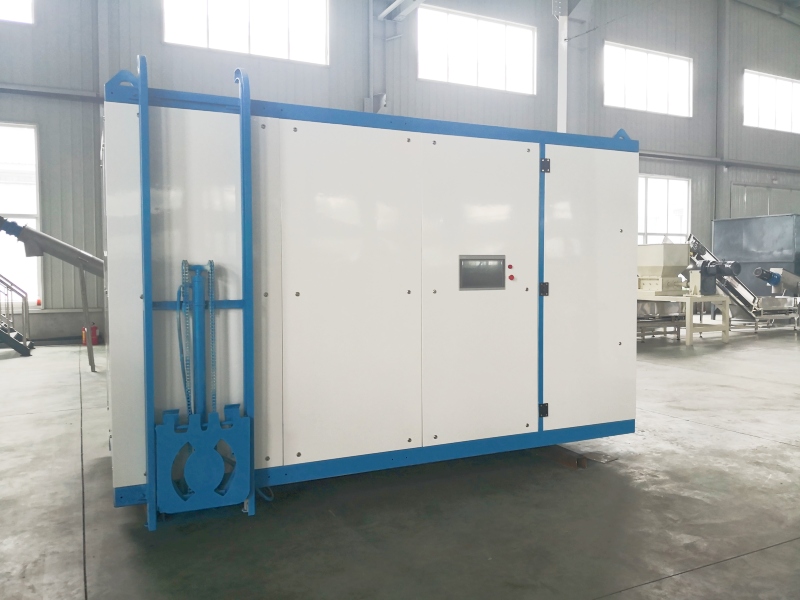
Kitchen food waste dewatering machines have become essential tools in the quest for sustainable waste management. These innovative devices serve multiple purposes in efficiently reducing and managing food waste generated in households and commercial kitchens. In this article, we explore the diverse applications of kitchen food waste dewatering machines.
Volume Reduction:
One primary function of kitchen food waste dewatering machines is to significantly reduce the volume of food waste. By separating water content from the waste material, these machines can compact the remaining organic matter, leading to a substantial reduction in the overall volume of waste produced.
Wastewater Management:
The water extracted during the dewatering process contains valuable nutrients. Kitchen food waste dewatering machines often include features to separate and collect this nutrient-rich water. This water can be repurposed for various applications, such as irrigation for plants or even as a base for nutrient-rich liquid fertilizers.
Odor Control:
Food waste decomposition often results in unpleasant odors. Kitchen food waste dewatering machines contribute to odor control by removing moisture from the waste, thereby inhibiting the growth of odor-producing bacteria. This feature makes them particularly suitable for use in kitchens and other spaces where odor control is crucial.
Composting Enhancement:
The dewatered food waste, having reduced volume and moisture content, is an ideal material for composting. It accelerates the composting process, creating nutrient-rich compost that can be used to enrich soil. This promotes a closed-loop system where food waste is transformed into a valuable resource for gardening and agriculture.
Energy Generation:
Some advanced kitchen food waste dewatering machines can be integrated into anaerobic digestion systems. The dewatered waste serves as a feedstock for the production of biogas, which can be used for energy generation. This aligns with the broader goal of harnessing renewable energy from organic waste.
Waste-to-Energy Potential:
Beyond biogas, the dewatered food waste can also be explored as a potential source for waste-to-energy processes. Technologies such as gasification or pyrolysis can convert the dewatered waste into heat or electricity, contributing to sustainable energy solutions.
Reduction of Landfill Impact:
By efficiently managing food waste at the source and reducing its volume, kitchen food waste dewatering machines play a crucial role in minimizing the environmental impact of landfills. The compacted and dewatered waste is more environmentally friendly to dispose of, contributing to a more sustainable waste disposal system.
Conclusion:
Kitchen food waste dewatering machines offer a versatile set of solutions for managing food waste, ranging from volume reduction and odor control to nutrient recovery and energy generation. As the world increasingly focuses on sustainable practices, these machines stand out as valuable tools in the pursuit of a circular economy and responsible waste management.




If your company wants to establish a business relationship with us, please briefly describe the cooperation intention and send an email to:chuantaiscrewpress@gmail.com























































































![[list:title]](/static/upload/image/20240528/1716877114510915.jpg)